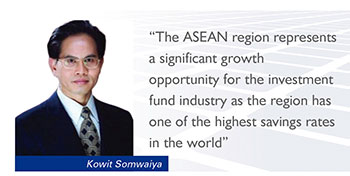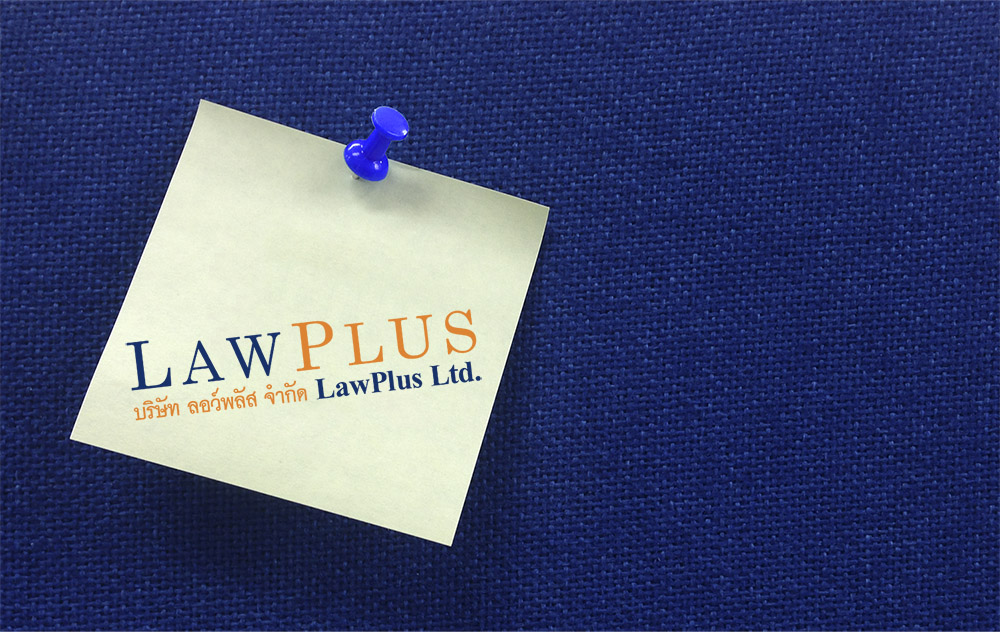Looking at the ASEAN Collective Investment Scheme, Kowit Somwaiya and Vincent Birot of LawPlus Ltd. state why they feel ASEAN offers investment funds terrific opportunities going forward, as well as noting what ASEAN has planned for the near future.
The ASEAN Collective Investment Scheme (ASEAN CIS) aims at facilitating the cross-border sale of mutual funds across Malaysia, Singapore and Thailand. It was launched on August 25, 2014 by Singapore, Malaysia and Thailand and it remains open to the other ASEAN countries to join. The scheme is similar to the Undertakings for Investment in Transferable Securities (UCITS) framework of the EU.
The ASEAN region represents a significant growth opportunity for the investment fund industry as the region has one of the highest savings rates in the world. However, the fragmentation of the regulatory approach across the region makes distribution of funds expensive or, in some cases, impossible.
Fund managers based in Singapore and Malaysia can now offer ASEAN CIS authorised in their home jurisdiction to retail investors in Thailand under a streamlined authorisation process, provided that the fund in question satisfies the common standards specified in the Standards of Qualifying CIS and the specific regulations imposed by the Securities and Exchange Commission of Thailand (the SEC).
1. Standards of Qualifying CIS
The Monetary Authority of Singapore, the Securities Commission of Malaysia and the SEC have adopted the Standards of Qualifying CIS (the Standards) that governs the cross-border offering of ASEAN CIS. The Standards set out common rules on the qualifications of the fund manager, the criteria for a qualifying ASEAN CIS, the liquidity, valuation, eligible investments and the investment limits of the ASEAN CIS. They aim to provide a common playing field for asset managers and ensure a secured environment for investors across the region. The highlights of the Standards are set out below.
1.1 The management company
The management company (referred to as the CIS Operator under the Standards) together with its related companies must have a track record in managing collective investment schemes for at least five years and have assets under management (AUM) of at least US$500 million globally. The Standards specify that the AUM includes discretionary funds but excludes property funds or real estate investment trusts (commonly known as REIT).
The Standards impose rules on the organisational structure of the management company in line with the international standards of practices of the investment fund industry. The Standards stress that the board members and the key executives of the management company must be of sufficiently good repute and experienced in relation to the financial sector. For instance, the Chief Executive Officer (CEO), or equivalent of the management company must have a minimum of 10 years’ experience, while all members of the board of directors must have a minimum of five years’ experience. Unlike in the UCITS Framework as modified by the UCITS V directive, there is no rule restricting the remuneration of the employees of the management company.
1.2 Legal form and minimum capital adequacy
The Standards do not specify any particular legal form to qualify as an ASEAN CIS. The ASEAN CIS can be structured in any form acceptable under the laws and regulation of its home regulator.
The ASEAN CIS must maintain a minimum capital of US$1 million at all times. When the management company has the AUM of more than US$500 million, the ASEAN CIS must maintain additional capital equivalent to 0.1 percent of the AUM in excess of US$500 million. It is possible to avoid the additional capital requirement by subscribing to a professional indemnity insurance offering an equivalent amount of coverage.
1.3 Custodian
The assets of the ASEAN CIS must be entrusted to an independent custodian for safekeeping. The custodian can be either the trustee/fund supervisor or an institution that is subject to prudential regulation and on-going supervision, and independent from the management company.
The custodian must, at all times, keep the assets of the ASEAN CIS segregated from its own and other clients’ assets to ensure that the ASEAN CIS’ assets are protected from losses by or insolvency of the custodian.
1.4 Liquidity
One of the important characteristics to make a fund attractive to investors is the ease of buying or selling fund’s units. As a general rule under the Standards, investors may buy or sell the ASEAN CIS units at least once a month, subject to limited exceptions. The investors must receive their redemption payment within seven business days.
1.5 Valuation
The sale or purchase price is determined by the net asset value (NAV) per unit. The NAV is equal to the net assets of the ASEAN CIS divided by the number of units held by investors minus fees and commission charges as the case may be. The management company must ensure that the NAV is calculated and published at least every dealing day and that the published NAV is readily accessible by investors in Thailand.
An independent party must be appointed for valuations and NAV calculation. It has to be either an external auditor, the trustee/fund supervisor or a unit within the management company which is independent from the fund management function.
1.6 Eligible assets and investment limits
The Standards set out the rules on the kinds of assets in which ASEAN CIS are allowed to invest. The eligible assets for ASEAN CIS include transferable securities, money market instruments, deposits, units in other ASEAN CIS and financial derivatives. The Standards further describe the characteristics of the eligible assets and the investment limits.
It should be noted that the Standards recognise the master/feeder structure. To qualify as a feeder, an ASEAN CIS must invest at least 85 percent of its net assets in units of another ASEAN CIS.
 2. Marketing approval process The marketing approval process can be divided into two steps: the application before the home regulator; and, if successful, the application before the SEC.2.1 Approval from the home regulator A management company that intends to offer an ASEAN CIS to Thai investors under the ASEAN CIS Framework must first submit an application to its home regulator (either before the Monetary Authority of Singapore or the Securities Commission of Malaysia as they are the only members of the ASEAN CIS Framework so far) for the home regulator to: approve the ASEAN CIS for offer to the public in the home jurisdiction; and assesses whether the fund qualifies as an ASEAN CIS under the Standards.In doing so, the home regulator will not only check that the fund complies with the Standards but will also have to assess that the fund complies with the local laws and regulations applicable to mutual funds. As a result, the local regulator may impose additional restrictions on the ASEAN CIS. The Standards do not provide for a maximum time period for the approval but, in practice, the timeframe should be similar to that of the approval of a local mutual fund.2.2 Application to the office of the SEC Once approved by its home regulator, the management company must apply to the office of the SEC by submitting the ASEAN CIS Application Form available on the website of the SEC (the Application Letter) together with the supporting documents. The application fee is THB 100,000 net of the seven percent VAT. (i) Supporting documents
(ii) Language of the supporting documents The fact sheet of the ASEAN CIS (a more detailed version of the so-called Key Investor Information Documents (KIID)) must be prepared in Thai. |
 |
| (iii) Appointment of local distributor and local representative The management company is required to appoint a local broker licensed by the SEC to conduct the marketing of units of the ASEAN CIS. The Standards do not allow the direct marketing in the host country. A local representative must be appointed in Thailand for coordinating and facilitating the exchanges with the SEC.(iv) Timelines The timeframe for the review of the application for streamlined authorisation of the ASEAN CIS is 30 days after the completed documents have been received by the SEC. If the application is successful, the SEC will issue an approval letter to the management company or its local representative.(v) Foreign exchange control Foreign exchanges are regulated in Thailand under the Exchange Control Act B.E. 2485 as amended and applicable regulations. Both institutional and retail investors are allowed to invest in ASEAN CIS within a global limit of US$50,000 million. The local intermediaries need to seek the SEC approval and report electronically via the foreign investment allotment (FIA) system for each of their clients.The management company may offer units of the ASEAN CIS in Thailand in either Thai baht (THB) or US$. If the management company chooses to offer the units of the ASEAN CIS in THB, the local distributor will convert THB to US$ in the amount equivalent to that being raised in Thailand. (vi) Right of refusal 3. Ongoing obligations The SEC requires that the management company discloses to investors monthly information concerning the portfolio of the ASEAN CIS. A semi-annual report and an annual report must be prepared too according to the rules specified in the Standards. Additionally, the management company must disclose to Thai investors all the information required to be disclosed to local investors under the laws and regulations of its home regulator. Finally, the management company must inform the home regulator and the SEC of any significant changes to the ASEAN CIS. The SEC may instruct the management company to notify the investors of such change. The Standards contain a list of events that are deemed to be significant. As Thailand and Singapore are parties to both schemes, it is likely that the APEC standards of collective investment scheme will be similar to those of the ASEAN CIS, placing Thailand in a strategic position for the marketing and the management of collective investment schemes. |
Email: kowit.somwaiya@lawplusltd.com
vincent.birot@lawplusltd.com
Website: www.lawplusltd.com













 Prasantaya Bantadtan
Prasantaya Bantadtan







